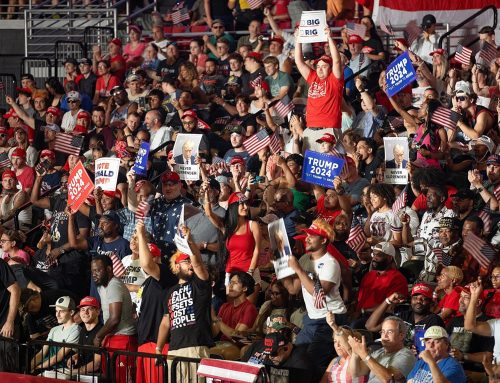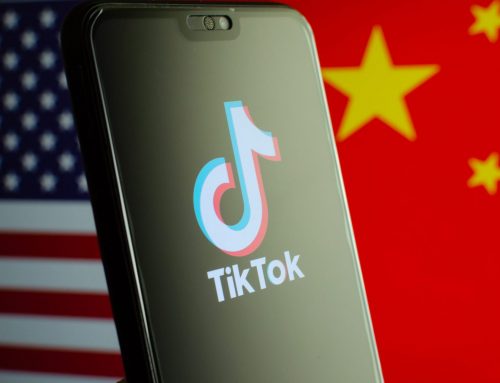Following the publication of the U.S. intelligence community’s assessment of foreign interference in the 2020 election, Russian state media last week highlighted predictable backlash and denials from Russian government figures, with a small amount of additional content suggesting that the assessment’s conclusions were predetermined to implicate U.S. geopolitical rivals. Further backlash followed President Biden’s characterization of Putin as a “killer” during an interview, with the remark generally panned as outrageous posturing. State media emphasized some criticism from other sources, such as reports of apology letters sent to the Russian embassy from Americans. Russian diplomats on Twitter also widely shared Putin’s subsequent invitation to have a public dialogue with Biden. After Biden declined, state media highlighted suggestions that Biden had dodged Putin, at times amplifying domestic voices tying the decision to supposed problems with Biden’s mental fitness. As with the previous week, Russian state media also eagerly tracked the growing number of countries in Europe that had suspended use of the AstraZeneca vaccine and highlighted the deaths of people who had received it. In some instances, they also amplified calls for the EU to approve Sputnik V as a solution to the concerns about AstraZeneca. State media also emphasized divisions emerging in the response to these concerns, while highlighting European countries that had decided on their own to approve and procure Sputnik V. Led by diplomatic accounts on Twitter, the Russian information ecosystem put out a spate of messaging last week marking the seventh anniversary of the 2014 Crimean status referendum. Key themes featured the hallmarks of Russia’s messaging on Crimea, including characterizing the vote as a “true triumph of democracy” and an act of self-determination; highlighting the official results; labeling the result as a return to or reunification with Russia; claiming that Crimea is better off with Russia than it was with Ukraine; and suggesting that Crimea’s de facto future is with Russia, despite Western opposition.
Following the tragic shooting of eight people, including six Asian-American women, in Atlanta last Tuesday, Chinese diplomats and state media loudly supported the ensuing protests against Asian-American racism. While understandably critical, most of the coverage of the killings was factual. However, Chinese propagandists blurred the line between the Asian American Pacific Islander (AAPI) community and the Chinese government by implying that criticism of the Chinese government is one of the main causes behind hate crimes against Asians in the United States. While the United States was the main target of Chinese officials’ criticism, China’s permanent representative to the United Nations in Geneva also urged “the United Kingdom, Australia, Canada and the relevant EU countries to take steps likewise to address serious problems of racism, racial discrimination and xenophobic violence at home.” Besides the tragedy in Atlanta, tensions in Xinjiang and Hong Kong continued to occupy much of the Chinese propaganda apparatus’ focus, with the terms appearing, respectively, as the second and third most used terms by Chinese diplomats on Twitter. The narratives were largely recycled from previous weeks, with Chinese messengers portraying Xinjiang as a peaceful bastion whose residents are enjoying increasing life expectancy, while Hong Kong’s population was depicted as wholeheartedly supporting the electoral reforms that have finally “freed” them from the British colonial yoke. Finally, the opening statements from Chinese and U.S. officials at last Thursday’s summit in Alaska drew a lot of attention from Chinese state media. The opening statements from Chinese and U.S. officials at last Thursday’s meeting in Alaska drew a lot of attention from Chinese state media. Seven out of the ten most viewed CGTN videos on YouTube last week concerned the summit. The most viewed video of the week saw a stern senior Chinese diplomat warn that the U.S. will be the “one to suffer if it suppresses China.” Following the meeting between Japanese and U.S. officials on Tuesday, a CGTN video also warned Japan against forming an “anti-China clique,” while China Daily said Tokyo was “inviting the wolf into the house.” Chinese state media and diplomats used the same photos to contrast Japan’s supposed subservience with China’s proud defiance of the West. In the words of China’s consul to Rio: “You Japan should know your own weight. When two elephants are wrestling, you’d better stay away!!!”
On the Iranian dashboard, many regime-linked social media accounts last week were focused on the celebrations of Nowruz, the Persian New Year. Some lamented a second Nowruz feast under coronavirus restrictions, while others offered hope that Iran is turning a corner on the pandemic. Relatedly, pro-regime media trumpeted the first phase of trials for a new Iranian vaccine called “Fakhra.” (Another Iranian vaccine, Barekat, is already in use). Iranian media also accused the United States of using diplomatic pressure to keep the Sputnik V vaccine out of hard-hit Brazil. Continuing a trend from the past few weeks, a large share of Tehran-linked content focused on the status of the Iran nuclear deal (JCPOA), blasting the “maximum pressure” campaign as a failure, and referring to former President Trump as the #FormerFool. In other geopolitical messaging, foreign minister Javad Zarif observed the 33rd anniversary of the Halabja chemical attack by Iraqi forces on Iranian civilians, and harshly criticized the United States for supplying Saddam Hussein with chemical weapons, quipping on Twitter, “Still want to talk about ‘malign regional behavior’? Shameless.” Pro-regime media, particularly Press TV, also ran many articles highlighting recent Houthi successes in the Yemeni Civil War while criticizing Saudi conduct. The supreme leader went out of his way to criticize “Obama’s Democrat govt” for having supported the Saudi-led intervention in Yemen. Finally, some Iranian media reported on the U.S. Intelligence Community report’s accusations of Russian interference in the 2020 election, but they mostly ignored charges in the same report against Iran.
Explore the Hamilton 2.0 dashboard here.
The views expressed in GMF publications and commentary are the views of the author alone.








